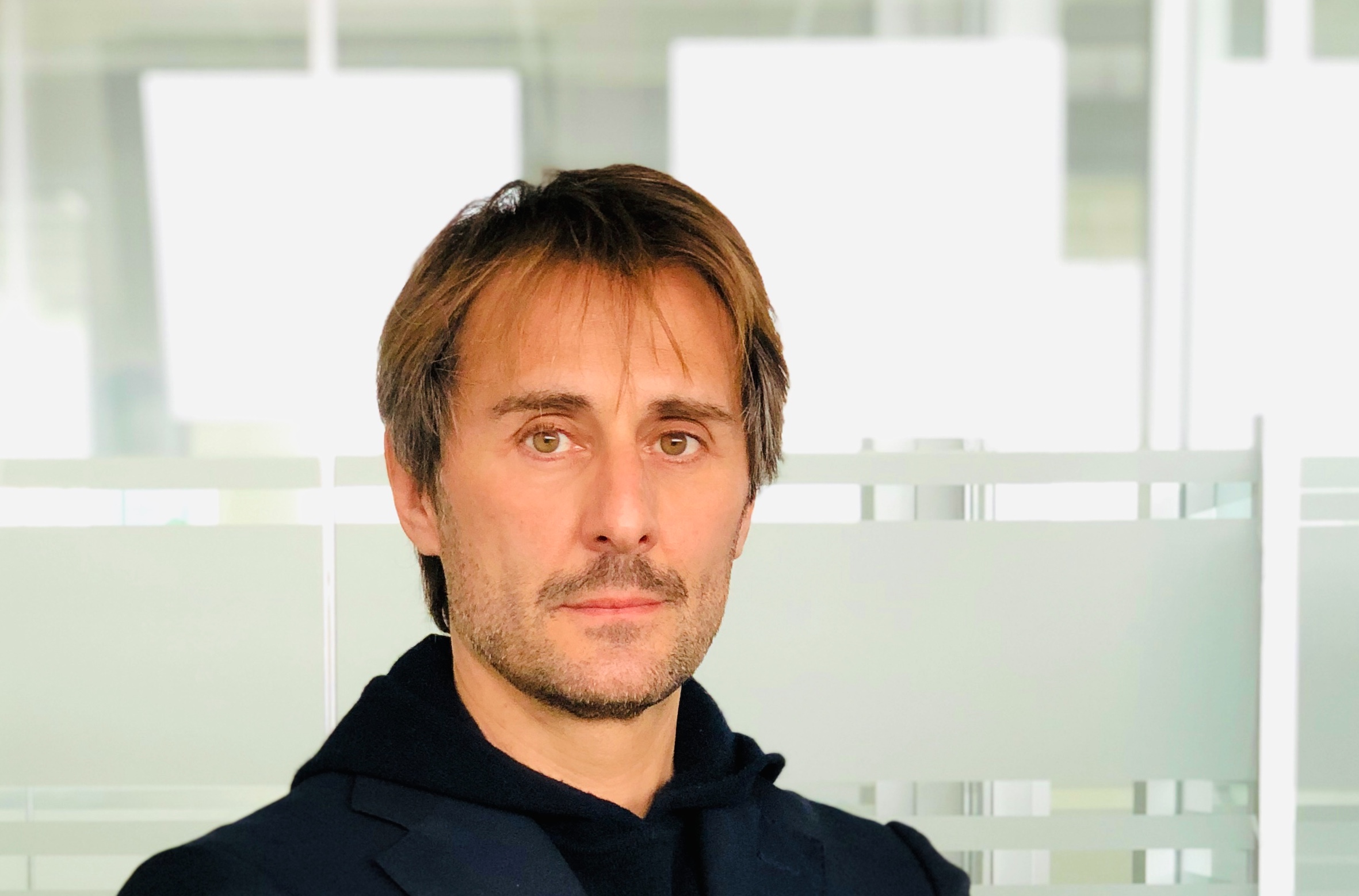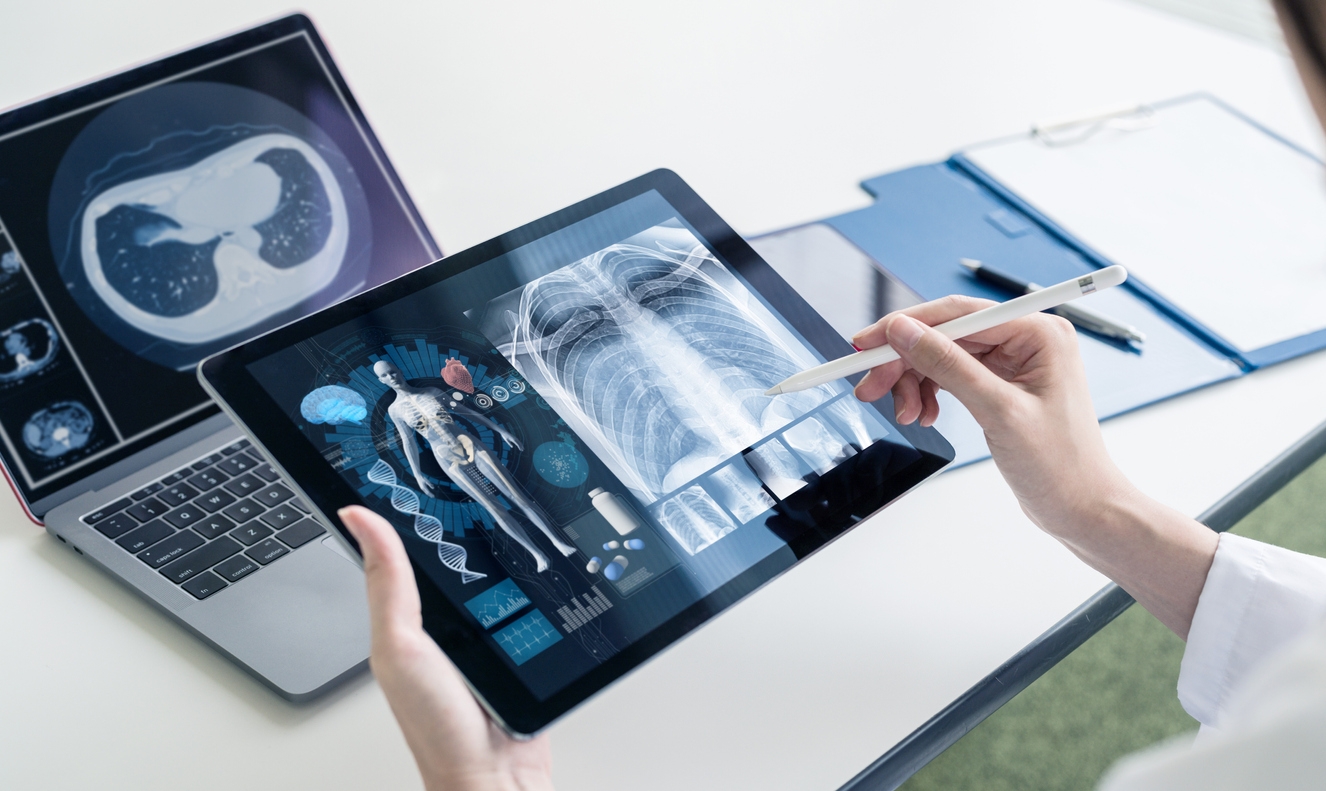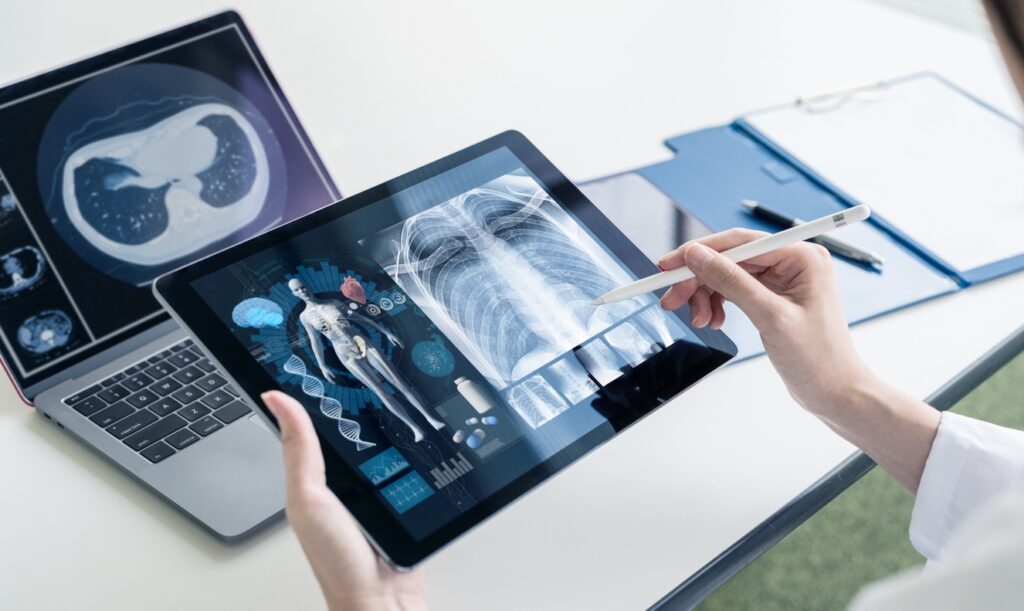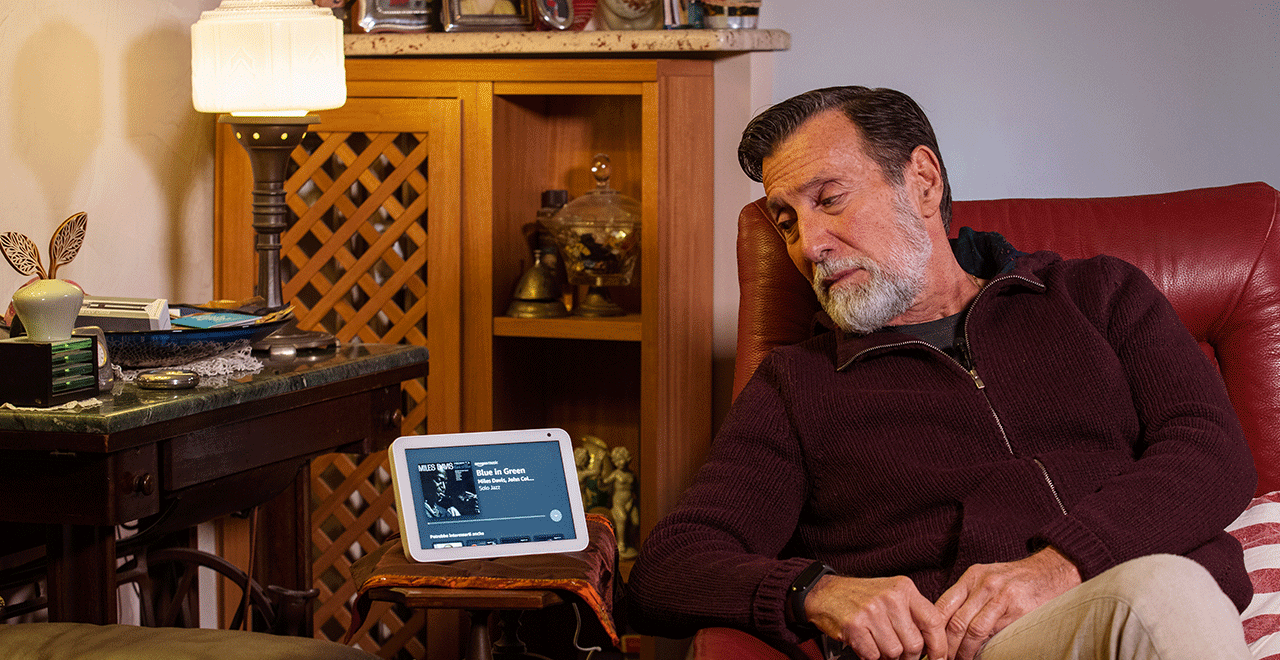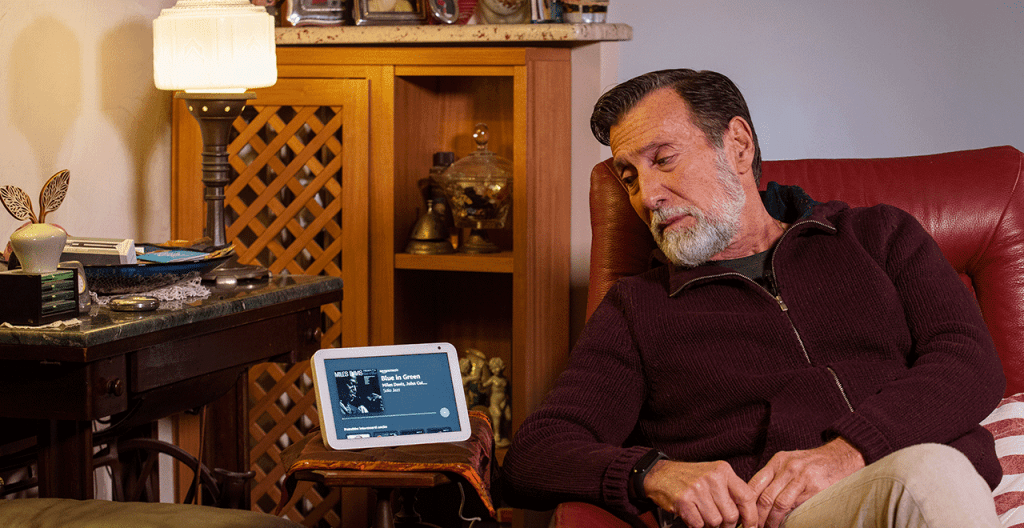Chat GPT or more generally artificial intelligence, has shown us that technology is rapidly evolving; a phenomenon that will transform the way medicine is practiced. With the ability of machine learning and data analysis, AI is revolutionizing the diagnosis, treatment, and prevention of numerous diseases.
Continue readingTechnology (alone) is not sufficient to innovate in Digital Health
Interview with our CEO, Francesco Marcellino, to better understand the dynamics of digital health, Datawizard’s activities and the impact of COVID19 on innovation for health.
Where did Datawizard’s business idea come from?
Datawizard’s story is intertwined with that of my professional development. Professionally, I was not born an entrepreneur. I worked in management consulting and IT consulting for 14 years: very satisfying, but at some point the desire to go beyond the limits imposed by a corporate career – a bit like the myth of the Pillars of Hercules – became too great.
So in 2012, together with another partner, I set up my own digital consultancy. A company that now has four offices and employs around 180 people. It was there that I began to navigate the ocean of opportunities offered by the digital frontier. After a short time, however, it became clear to me that one sector in particular would benefit more than any other from the convergence dynamics that digital had unleashed in those years (2008-2012): the healthcare sector.
And so, less than a year after registering the trademark for my first company, I launched another digital health start-up: Datawizard.
Initially, Datawizard was a startup with a very specific challenge: to use open data on medicines to create a valuable service for users. This was the idea behind Pharmawizard, the app that eventually made medicine leaflets ‘readable’ for hundreds of thousands of people. At the time of its launch (2014), it was even the most downloaded app in the health section of digital stores for several weeks, and to date has reached nearly 1 million downloads and subscriptions.
Pharmawizard was the start of many other projects. From this experience we learned a lot about citizen-patient engagement models, health service design, strategies to overcome the obstacles of outdated regulations, loyalty mechanisms, etc.
During our experience at Datawizard, we have deeply explored the market, the technologies and the important needs to be solved, not only with respect to the Italian context.
Today, the company employs people with very different cultural backgrounds and skills: developers, pharmacists, designers who work alongside project managers from Silicon Valley, PhDs in immunology and molecular biologists with decades of experience abroad, plus a network of over 120 research centres, universities and industry experts across Europe who actively collaborate with us to create highly innovative projects. This means that in the course of our consolidation process (from start-up to company), we have acquired 2 important insights: the first is that the challenge of digital health (now and in the years to come) is a long-term and universal one; the second is that to make a difference today, it is very necessary to be open-minded and able to contaminate between different skills, such as between the designer and the doctor.
Could you tell us more about Datawizard’s innovation process?
Datawizard innovates through 3 different lines of action:
The first is a continuous activity of participation in different innovation projects in Europe. We are currently part of 6 European research consortia, one of which is the UNICOM project, a project that has never been undertaken in Europe before and which aims to standardise the nomenclature of medicines, their dispensing and cross-border prescribing. These projects not only bring us into contact with the best digital health experts in Europe, but also provide us with skills and knowledge that can add value to our offerings (platforms and consulting) to the market.
The second line of innovation is the application of Design Thinking and Service Design methodologies and processes to the challenges and insights offered by the market: we involve experts from different fields (doctors, developers, designers) in co-creation sessions designed to stimulate the search for original, competitive and sustainable solutions. With regard to this line of innovation, I would like to mention the partnership we have with Prof. Graffigna and the EnagageMinds HUB, the first Italian multidisciplinary research centre dedicated to the study and promotion of engagement – the active involvement of people in health behaviour and food consumption.
Finally, the third line comes from the market. On a daily basis, we work with and are confronted by all those companies that are orienting their offer portfolio towards the creation of health services as a de-commercialisation lever of their core offer: from insurance companies to banks, from utilities to pharmaceutical companies and telecoms.
These comparisons are fundamental for us in order to turn each project into a sustainable and profitable business idea, as they allow us to complement our vision and our initiatives, born from pure research, with the concreteness of the market and the evolution of its needs.
Beyond these 3 lines of action, the real drivers of our ability to innovate are the curiosity and passion that each person in our team brings to the table.
In order to be truly innovative – and not ‘pose’ as innovative – it is essential to have the ability to change perspectives and to constantly question oneself.
How did the COVID-19 pandemic affect Datawizard’s business and how was this crisis managed?
The pandemic was a catalyst for Datawizard. Many of our stakeholders (pharmaceutical companies, insurance companies, etc.) realised that digitalisation and innovation were hic et nunc and that the time was ripe to break new ground.
From an organisational point of view, Covid-19 has had little impact on our activities: Datawizard has a flexible and decentralised organisational model.
Even before the pandemic, our business calendar was punctuated by remote conference calls and shared projects on collaborative cloud platforms.
Were there any difficult decisions to be made? And what were the lessons learned?
We were not forced to make any drastic decisions, but that depends on a number of factors: the sector we operate in, the flexibility of the organisational model, a robust and diversified business model, and so on.
In any case, this pandemic has also been a learning experience for us. Just think about how the patient experience – the journey – of accessing healthcare services has changed. Talking about the patient journey is an approach that now has very obvious limitations because it excludes many contingent factors; it is a perspective that does not give a clear overview. We have observed, for example, that making a visit, booking a diagnostic test, is not a process triggered solely by individual will (individual journey), but can be an action that corresponds to the final part of a pathway – ‘funnel’ – of social marketing that has persuaded the individual to act for the benefit of a group of individuals. What is being ‘sold’ is responsible and correct behaviour, which requires thinking outside the canon of traditional marketing. Anyone wishing to engage in health marketing today must be able to completely rethink the mechanism of user engagement and avoid easy florileges or parallels with established strategies in other sectors.
How do you manage stress and anxiety in this time of health emergency, and how do you project people and companies into the future?
A lot of resilience, both individually and as a team.
It has often been the case that our increasingly frequent work meetings have begun with a discussion of the current situation, and we have shared our moods on a daily basis. Over the past year, our team has been joined by people from other countries who have suddenly found themselves in a new city, under lockdown, and in a dimension of work far removed from the office. These are conditions that can lead to great stress, which is why I have personally tried to listen more, to understand expectations, fears and needs beyond the sphere of work. It is a simple gesture, but one that makes us feel less alone and helps us overcome the communication problems that can easily hinder the smooth exchange of information in smartworking.
It was tough, but we all came out of it very well. This is what I mean by team resilience.
As I said, the challenge we face is a long-term one. Digital health in Italy, but more generally in the world, does not yet have a real target market, the context is still very liquid and the demand is still rather latent. Essentially, it is supply that stimulates potential demand and not the other way around. We are at the beginning of a new, huge and very interesting market; those taking the first steps are doing so mainly through education and experimentation to find better ways and use cases.
Datawizard’s construction site for 2021 includes the creation of a new digital services platform. This is a very important project, the idea for which was born after a strategic scouting of digital health solutions at a global level. This is a very substantial and solid piece of research, which we intend to publish in a few weeks’ time, in which we have compared products, technologies, markets and business models in an evaluation matrix, following a selection framework linked to an analysis of investment flows.
In the medium term, the discourse is clearly different: our growth strategy in the area of innovation projects remains firm: it is thanks to this activity that we are able to generate new knowledge and test new services on the market to propose to our clients.
Another proof of our positive growth trend is our internal team, which has been strengthened over the last year with the presence of 1 Senior Service Designer with vertical experience in health issues, 2 Data Scientists, 1 PhD of Greek origin with experience in the Netherlands and 1 PhD of Milanese origin with experience in South East Asia.
How is Datawizard positioned in relation to its competitors in the world of Digital Health?
Digital Health is a very specific field and cannot yet be defined as a sector tout court.
To date, Datawizard does not have any direct competitors – able to offer the same services – but rather comparators: companies with similar skills to ours, but applied in other sectors.
On the market, our value lies in a consulting approach that is always focused on the objective: to reinterpret the mechanisms of engagement, re-engagement and activation of users on digital health platforms, knowing how to use innovation, service design and digital development expertise to anchor a project.
Let me give you an example: to date, Datawizard is the only company to be certified by Eheden – https://www.ehden.eu/ – a network working to ensure interoperability and standardisation of health data at European level. Today, if a company wanted to develop a digital project in compliance with European interoperability rules, relevant to the user, to start a digital development and make it a mature business, Datawizard is the only company in Italy, and among the few in Europe, able to realise such a project.
What are your final thoughts on this emergency?
I am almost embarrassed to repeat that this is a difficult period and a crisis, but never, because in an emergency like this you have to remain clear and focused to know how to interpret this moment as a phase.
I would like to remind you of the words of two great scientists of the 20th century:
“In the midst of difficulties there are possibilities.” (A. Einstein)
“Do not fear the difficult moments. The best comes from them.” (R.L. Montalcini)
Montalcini and Einstein, in addition to being extraordinary intellects, suffered profound injustices during their lives, as well as living through 2 world wars, the Spanish flu pandemic, the crisis of ’29…
Perhaps today, before giving in to fears and anxieties, we should remember the profound message that these people gave us with these words.


